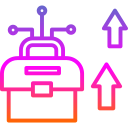Adaptability and Continuous Learning
Commit to 20 minutes daily for 14 days, focused on one skill. Track progress with a simple checklist and a one-sentence reflection. Small, consistent practice beats heroic, inconsistent effort over any quarter.
Adaptability and Continuous Learning
Before switching roles, run a two-week test: shadow a colleague, volunteer for a cross-functional task, or prototype a process. One analyst piloted customer interviews and discovered a passion for UX research without risking their current position.






